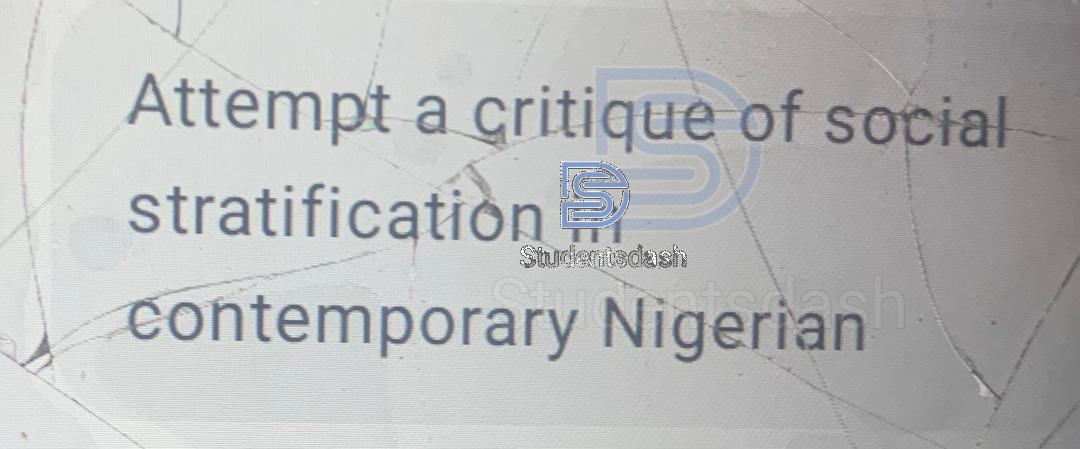MAN 371 Assignment Questions and Answers
MAN 371
The research topics is effect of alcohol consumption on male undergraduate student of ebonyi State University.
Identify the variable decompose the and use it to form objective
She needs 4 objectives from this study
PLEASE SHE NEEDS ONLY 4 OBJECTIVES (I wrote 10 please randomly pick only 4 or 5)
THE EFFECT OF ALCOHOL CONSUMPTION ON MALE UNDERGRADUATE STUDENTS OF EBONYI STATE UNIVERSITY
INTRODUCTION
Alcohol consumption among university students has become a growing concern in Nigeria. Many students see drinking as a way to socialize, relieve stress, or fit into peer groups. However, excessive alcohol consumption can have serious effects on students’ academic performance, health, social life, and overall well-being. Male undergraduate students, in particular, seem to be more engaged in alcohol consumption, which raises concerns about its impact on their future.
This study seeks to examine the effects of alcohol consumption on male undergraduate students of Ebonyi State University (EBSU). It will analyze why students drink, how it affects their lives, and what can be done to reduce the negative impact of alcohol consumption among them.
IDENTIFICATION OF VARIABLES
For this study, the variables are:
• Independent Variable: Alcohol consumption
• Dependent Variable: Effects on male undergraduate students of Ebonyi State University
The independent variable (alcohol consumption) refers to the intake of alcoholic drinks by male students, including the frequency, quantity, and type of alcohol consumed. The dependent variable (effects on male undergraduate students) includes the academic, health, social, and financial consequences of alcohol consumption.
DECOMPOSITION OF VARIABLES
To better understand this study, the variables can be decomposed as follows:
1. Alcohol Consumption:
• Frequency of drinking (daily, weekly, occasionally)
• Type of alcohol consumed (beer, spirits, local brews, etc.)
• Reasons for drinking (peer pressure, stress relief, enjoyment, etc.)
2. Effects on Male Undergraduate Students:
• Academic Impact: How alcohol affects concentration, class attendance, and performance in school.
• Health Impact: Possible health risks such as liver problems, addiction, and mental health issues.
• Social Impact: How alcohol influences relationships with family, friends, and lecturers.
• Financial Impact: The money spent on alcohol and how it affects students’ finances.
• Risky Behaviors: How alcohol use is linked to reckless actions like fights, accidents, and substance abuse.
RESEARCH OBJECTIVES
The purpose of this study is to examine the effects of alcohol consumption on male undergraduate students of Ebonyi State University. The specific objectives of this study are:
1. To determine the prevalence of alcohol consumption among male undergraduate students in EBSU.
This objective seeks to find out how common alcohol consumption is among male students. It will assess the percentage of students who drink and how often they do so.
2. To examine the reasons why male undergraduate students consume alcohol.
This will analyze the different factors that lead students to drink alcohol, such as peer pressure, stress, personal enjoyment, or cultural influence.
3. To assess the effect of alcohol consumption on academic performance.
The study will look at how drinking alcohol affects students’ ability to focus in class, complete assignments, and pass exams. It will also investigate if there is a link between alcohol use and poor grades.
4. To investigate the impact of alcohol consumption on the health of male undergraduate students.
This objective will explore the health consequences of alcohol use, including physical and mental health issues such as liver problems, addiction, depression, and anxiety.
5. To analyze how alcohol consumption affects students’ social behavior and relationships.
The study will examine whether alcohol use improves or damages students’ relationships with their friends, family, and lecturers. It will also explore whether alcohol leads to aggressive behavior or isolation.
6. To examine the financial implications of alcohol consumption on male students.
This objective will investigate how much money students spend on alcohol and whether it affects their ability to meet other financial needs like tuition, feeding, and accommodation.
7. To evaluate the influence of peer pressure on alcohol consumption among male students.
This will analyze how friends and social circles contribute to students’ drinking habits. It will seek to find out if students drink because of personal choice or because they want to fit in with their peers.
8. To determine the role of family background in students’ alcohol consumption habits.
The study will examine if students from families where alcohol is commonly consumed are more likely to drink than those from non-drinking backgrounds.
9. To explore the possible link between alcohol consumption and involvement in risky behaviors among male students.
This objective will investigate whether alcohol use leads to reckless actions such as fighting, reckless driving, unprotected sex, or drug abuse.
10. To recommend possible solutions to reduce alcohol abuse among male undergraduates in EBSU.
The study will suggest strategies that can help reduce excessive drinking among students, such as awareness campaigns, counseling, and university policies against alcohol abuse.
CONCLUSION
Alcohol consumption among male undergraduate students of EBSU is a topic that needs serious attention. While some students drink in moderation, others consume alcohol excessively, which affects their academic performance, health, social life, and financial situation. By understanding the effects of alcohol and the reasons why students drink, this study aims to create awareness and provide recommendations on how to control alcohol abuse among male undergraduates in EBSU.

